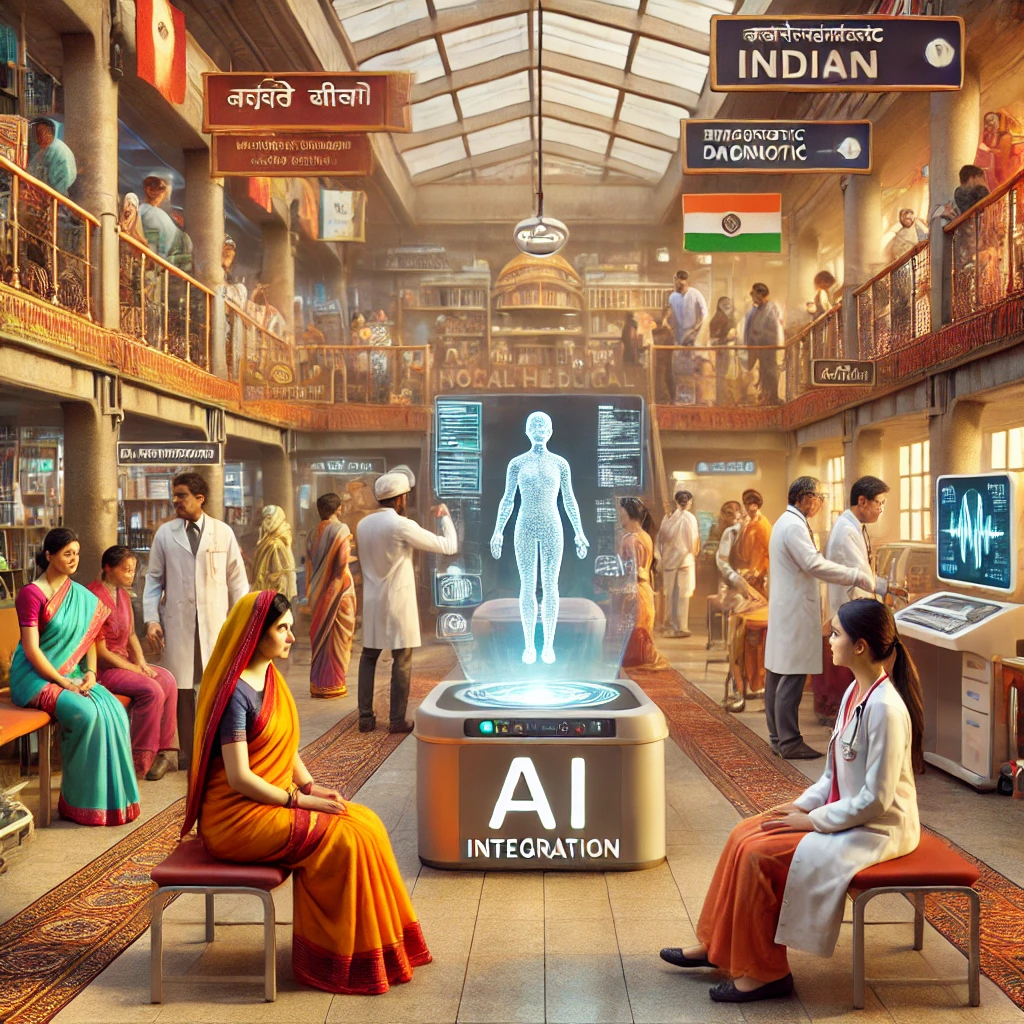Empowering Indian healthcare: Trustworthy AI at the heart of transformation
The successful adoption of trustworthy AI has transformative implications for Indian healthcare. AI-enabled diagnostic tools can alleviate the burden on overworked healthcare professionals, allowing them to focus on complex cases. Administrative applications, such as AI-powered scheduling and resource allocation, can enhance efficiency, reducing patient wait times and operational costs.

The Indian healthcare sector stands at a critical juncture, with increasing population demands, systemic inefficiencies, and disparities in access to care. Amid these challenges, Artificial Intelligence (AI) offers a powerful tool to address inefficiencies, improve patient outcomes, and expand healthcare access, especially to underserved populations. However, as promising as these technologies are, their adoption requires navigating ethical, infrastructural, and regulatory complexities
In their paper “Bridging the Gap in the Adoption of Trustworthy AI in Indian Healthcare: Challenges and Opportunities,” Sarat Kumar Chettri, Rup Kumar Deka, and Manob Jyoti Saikia critically examine the state of AI in Indian healthcare. Published in AI 2025, 6, 10, the study highlights the potential of AI to revolutionize healthcare while outlining the critical gaps that must be addressed for its successful implementation.
The promise of AI in healthcare
Artificial Intelligence encompasses machine learning, neural networks, and other computational techniques capable of predictive, diagnostic, and administrative tasks.
In the Indian context, AI’s role becomes even more pronounced due to resource scarcity and a high disease burden. Successful examples include AI-powered tuberculosis screening programs and smartphone-based diagnostic tools for cardiovascular health. These innovations have bridged gaps in rural healthcare delivery, where specialist access is often limited.
However, the potential of AI cannot be fully realized without addressing its inherent complexities. AI systems require vast amounts of high-quality data, yet India’s healthcare datasets are often fragmented, non-standardized, and biased. Furthermore, ethical issues, such as the risk of data misuse and algorithmic biases, loom large. Without frameworks ensuring transparency, accountability, and fairness, AI may inadvertently deepen existing inequities rather than resolve them.
A holistic evaluation of AI adoption
The authors adopt a systematic scoping review methodology based on the PRISMA-ScR framework, analyzing both academic literature and practical implementations of AI in Indian healthcare. Their evaluation spans 15 peer-reviewed articles and various government and private sector initiatives. This multidisciplinary approach examines how AI systems align with ethical, legal, and infrastructural standards, categorizing them into "Fully Aligned," "Partially Aligned," or "Not Aligned" with principles of trustworthy AI.
The study’s findings highlight systemic gaps. While AI systems demonstrate technical robustness, critical elements such as patient consent mechanisms, data privacy protocols, and the explainability of AI decisions are often underdeveloped. These gaps reveal the need for a structured framework to guide the ethical deployment of AI in healthcare, ensuring alignment with the sector’s unique demands.
Challenges and opportunities
The study identifies multiple challenges hindering the adoption of trustworthy AI in Indian healthcare. Limited availability of unbiased datasets, a lack of regulatory frameworks, and insufficient public awareness are prominent barriers. For instance, while AI systems like machine learning-based dengue detection models achieve high accuracy, they often fail to ensure patient privacy or meet data protection standards.
The authors also highlight infrastructural challenges, such as insufficient computational resources and limited integration of AI systems with existing healthcare frameworks. These challenges are compounded by the socio-economic diversity of India, where rural and marginalized populations often lack access to advanced technologies.
Despite these challenges, the study underscores significant opportunities for AI to transform Indian healthcare. AI-enabled diagnostic tools, telemedicine platforms, and personalized treatment systems have already demonstrated their potential. For example, Apollo Hospitals’ Clinical Intelligence Engine uses AI to provide real-time insights, enhancing diagnostic accuracy and treatment efficacy. Similarly, blockchain-integrated AI systems ensure data security while facilitating seamless medical record management.
To fully realize these opportunities, the authors advocate for the development of inclusive datasets reflecting India’s diverse demographics and robust encryption protocols to ensure data privacy.
Practical implications
The successful adoption of trustworthy AI has transformative implications for Indian healthcare. AI-enabled diagnostic tools can alleviate the burden on overworked healthcare professionals, allowing them to focus on complex cases. Administrative applications, such as AI-powered scheduling and resource allocation, can enhance efficiency, reducing patient wait times and operational costs.
Furthermore, AI has the potential to revolutionize rural healthcare delivery. By integrating AI with telemedicine platforms, patients in remote areas can access specialist consultations and high-quality diagnostics without traveling long distances. Blockchain and AI integration can create a secure, interoperable health records system, facilitating continuity of care across diverse healthcare providers
Navigating challenges and charting the path forward
To overcome the barriers to trustworthy AI adoption, a multi-pronged approach is essential. The authors emphasize the importance of inclusive datasets that reflect India’s socio-economic diversity. By ensuring that AI systems are trained on representative data, developers can minimize biases and improve decision-making accuracy.
Regulatory frameworks must evolve to address the nuances of AI in healthcare. India’s Digital Personal Data Protection Act (2023) is a step in the right direction, but additional measures are required to address sector-specific challenges. Comprehensive guidelines should mandate transparency in AI decision-making, ensuring that patients and clinicians understand the rationale behind AI-generated insights.
Public-private partnerships are critical to addressing infrastructural constraints. Investments in computational resources, digital literacy initiatives, and workforce training can bridge the gap between technological potential and practical application. For instance, government-sponsored AI training programs for healthcare professionals can foster confidence in AI systems, enabling their seamless integration into clinical workflows.
Finally, the authors advocate for patient-centered design in AI systems. This includes creating user-friendly interfaces and integrating AI tools into existing healthcare frameworks without disrupting patient-provider relationships. By prioritizing interpretability and user trust, AI can achieve broader acceptance and impact.
- FIRST PUBLISHED IN:
- Devdiscourse










